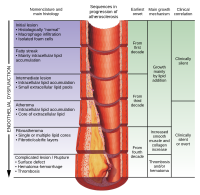
Rapamycin restrains platelet procoagulant responses via FKBP-mediated protection of mitochondrial integrity.
Sign Up to like & getrecommendations! Published in 2020 at "Biochemical pharmacology"
DOI: 10.1016/j.bcp.2020.113975
Abstract: BACKGROUND AND PURPOSE Rapamycin is a potent immunosuppressant and anti-proliferative agent used clinically to prevent organ transplant rejection and for coating coronary stents to counteract restenosis. Rapamycin complexes with the immunophilin FKBP12, which subsequently binds… read more here.
Keywords: platelet procoagulant; procoagulant responses; integrity; effect rapamycin ... See more keywords

Monocyte procoagulant responses to anthrax peptidoglycan are reinforced by proinflammatory cytokine signaling.
Sign Up to like & getrecommendations! Published in 2019 at "Blood advances"
DOI: 10.1182/bloodadvances.2019000513
Abstract: Disseminated intravascular coagulation is a frequent manifestation during bacterial infections and is associated with negative clinical outcomes. Imbalanced expression and activity of intravascular tissue factor (TF) is central to the development of infection-associated coagulopathies. Recently,… read more here.
Keywords: procoagulant responses; anthrax peptidoglycan; recognition; expression ... See more keywords

Immune suppression is associated with enhanced systemic inflammatory, endothelial and procoagulant responses in critically ill patients
Sign Up to like & getrecommendations! Published in 2022 at "PLoS ONE"
DOI: 10.1371/journal.pone.0271637
Abstract: Objective Patients admitted to the Intensive Care Unit (ICU) oftentimes show immunological signs of immune suppression. Consequently, immune stimulatory agents have been proposed as an adjunctive therapy approach in the ICU. The objective of this… read more here.
Keywords: immune suppression; blood leukocytes; procoagulant responses; suppression associated ... See more keywords